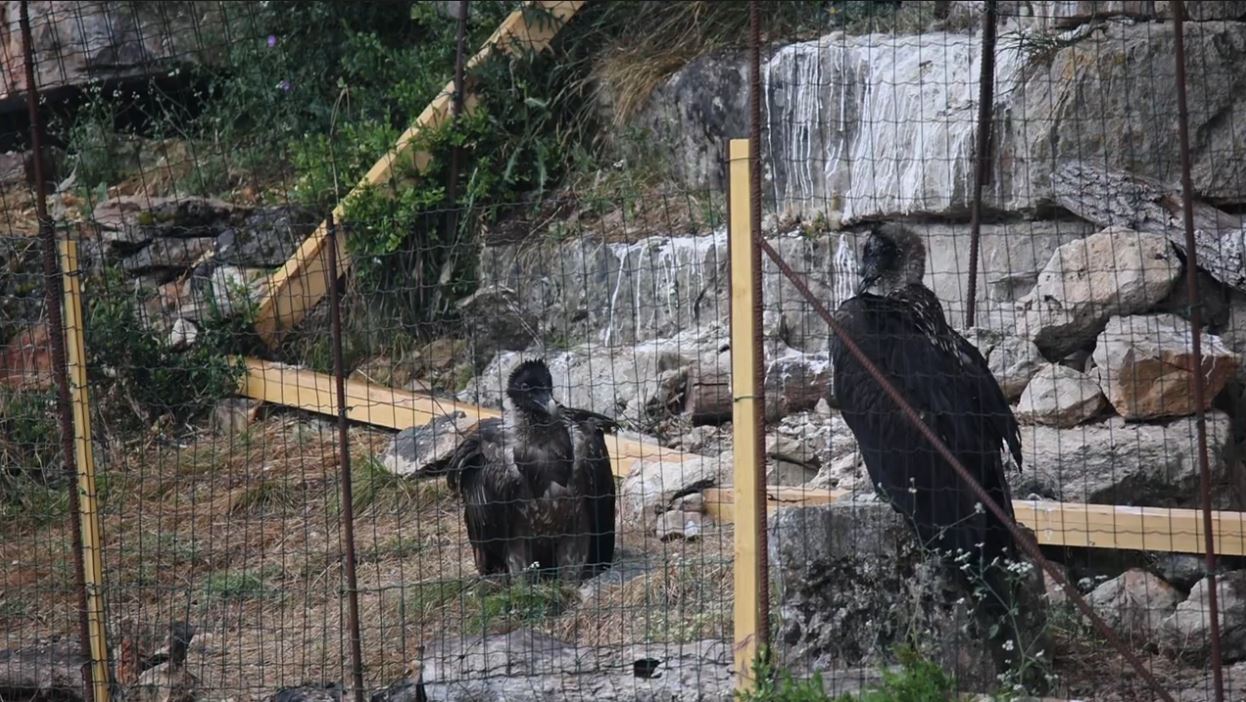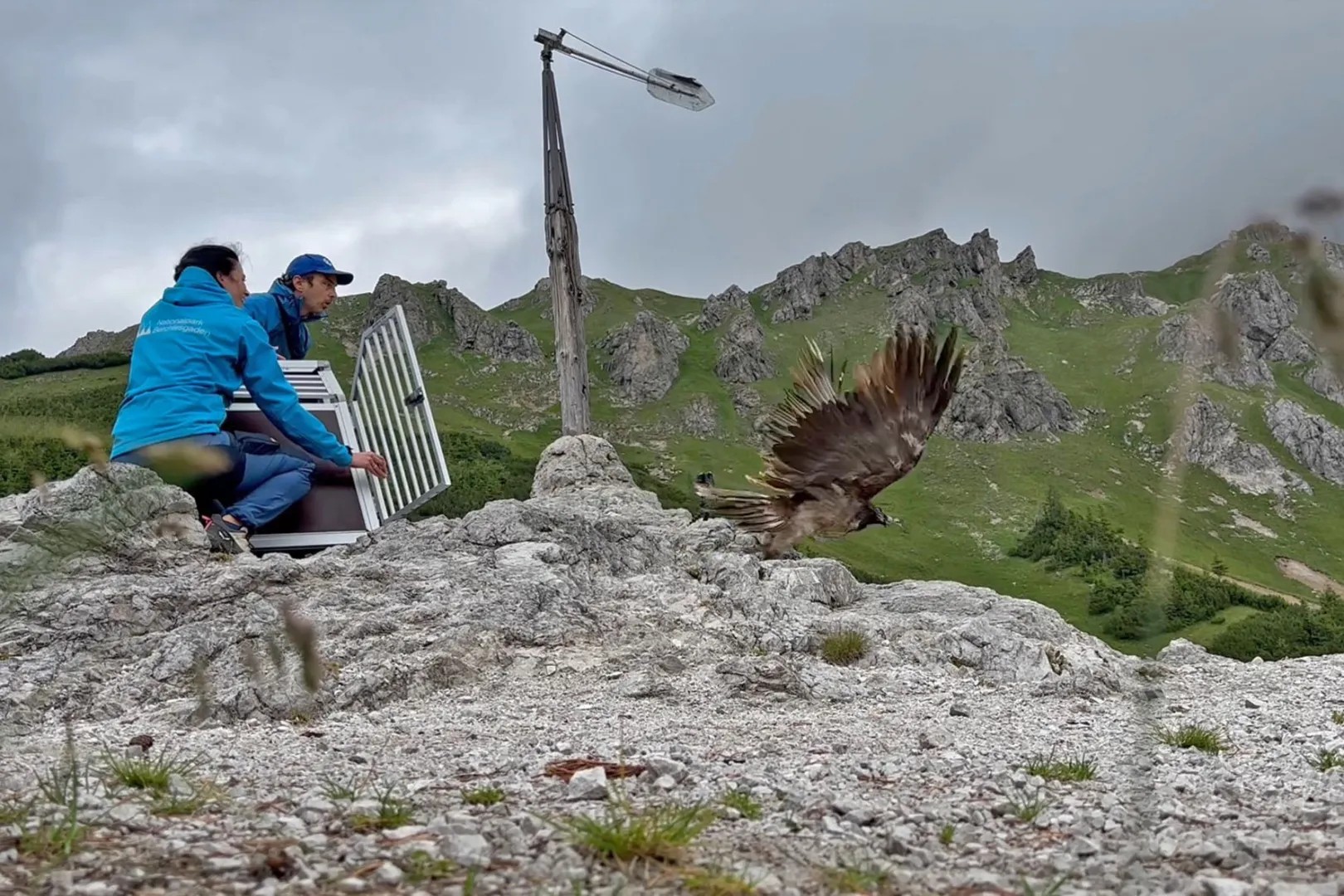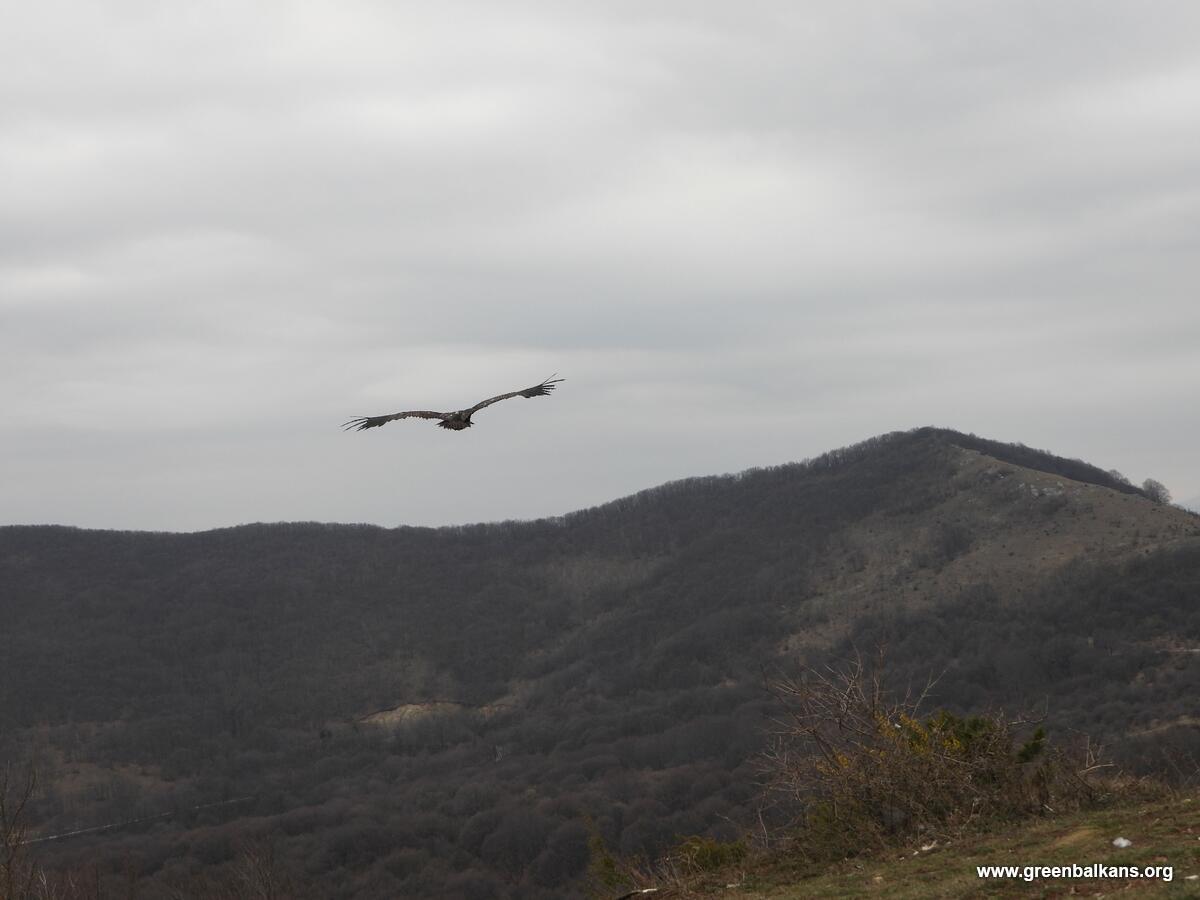Out with the Old, In with the New! 2023 in review: as the year comes to an end, we bid farewell with a recap of the key achievements we’re most proud of.
In a year that saw continuing and new wars, a dramatic deterioration of our environment and climate, and continuing attacks on tolerance, respect and solidarity between humans, and between humans and our planet, our message continues to be Yes we can! We can continue to give you more good news about vultures and contribute to make this a better, fairer, more diverse and more sustainable world!

2023 in review: Bearded Vulture
- Our Bearded Vulture Captive Breeding Network has produced a record 35 young Bearded Vultures, 21 of which were released in 5
reintroduction projects across Europe. - Bearded Vulture populations continue to do well, with another record year in the Alps, particularly in the Austrian Alps, where the population has practically doubled (9 pairs produced 8 fledglings). Also, in Italy, a new pair settled in the Alpi Marittime are reproduced successfully.
- We have started in earnest to prepare for the coming Bearded Vulture reintroduction in Bulgaria, following the steps of the successful Cinereous Vulture reintroduction there.
- The LIFE project Gyp’Act made it possible to increase the housing capacity in our specialised breeding centres at Vallcalent and Guadalentin, with the goal of ensuring the continuity of our reintroduction projects.
- In October, we organised another successful International Observation Days for the Bearded Vulture, the widest citizen-science initiative for the species, which counted with the participation of more than 1100 volunteers in 8 countries. Preliminary results are available.
- The “Story of the Bearded Vulture”, an amazing film by Lizzie Daly was launched this year, with incredible footage in our Specialised Breeding Unit at Vallcalent.

Cinereous Vulture
- The Cinereous Vulture (Aegypius monachus) population in Portugal has doubled from 40 to 80 pairs, reflecting not only real growth but also targeted and comprehensive surveys within the LIFE Aegypius Return project.
- Also within the same project, two recovered birds were released and 15 chicks were tagged, which are now being closely monitored, providing crucial information to prevent mortality.
- Aravil, a 13 years-old Cinereous Vulture who was ringed in the nest as a chick, was recaptured. It was the first chick in Portugal, after the species return to the country in 2010!
- In cooperation with wildlife recovery centers in Portugal 145 police officers and rangers were trained, making sure any injured bird falls in capable hands.
Griffon Vulture
- Twelve Griffon Vultures were released in Cyprus to restock the Critically Endangered population there, and 15 more were transported from Spain.
- The Griffon Vulture population is expanding in the Eastern Alps, with new breeding pairs found in Italy this year.
- In January, we started a new project in Croatia (LIFE SUPport) led by BIOM that will enable us and our Croatian partners to enhance the Griffon population there.

Fighting threats
- We have identified priorities and future work areas to further mitigate the threat of electrocution (and collision), the second most important threat affecting vultures (after poisoning). This threat will probably rank number one in the years to come.
- We have organised a 3rd specialized training course for our first two cohorts of trainees under the Wildlife Crime Academy, thus enhancing the capacities of dozens of people on investigating wildlife crime adequately.
- Inspired by the Wildlife Crime Academy, the first national anti-poisoning training occurred in Serbia.
- We organised a successful meeting of public prosecutors from several Balkan countries with their Spanish counterparts to discuss the crucial involvement of the judiciary in the fight against wildlife crime.
- We also saw courts in Cyprus deciding on the 1st ever prosecuted case for wildlife poisoning, a necessary step to curb this widespread illegal wildlife crime on the island.
- Following the EU ban on the use of lead ammunition in and around wetlands, we’ve been supporting the transition to lead-free alternatives, working directly with hunters in Portugal with the LIFE Aegypius Return project, in Croatia with the LIFE SUPport, in Sardinia with LIFE Safe for Vultures and raising awareness in Italy.
Outreach
- Our communication efforts, which include several new films and animations highlighting the vital role vultures play and the threats posed by illegal wildlife poisoning, have generated over 1 million impressions.
- We organised a very successful Vulture in Focus – Photography Contest with 450 amazing artworks received. Thank you to all the participants!
- Our Vulture Personality quiz was a success, with thousands of people taking it to discover their vulture totem! Have you found out yours?
Finally, we had the pleasure of welcoming and hosting around 400 participants from 46 countries in the second European Vulture Conference, an extraordinary event that has celebrated all the great work being done in Europe (and beyond) on vultures.


When you support our work, you help us build a brighter future for vultures in Europe. Here are three ways you can help this holiday season:
1. Please donate to the VCF to help us continue our work restoring European vulture populations.
2. Follow us on social media and engage with our posts to keep up to date with the latest news and help us raise awareness about the importance of vultures.
3. Talk about vultures, their importance and their conservation to your friends and relatives.
We hope the holidays and new year will bring you happiness and success.

Thank you once again for your continuous support.
The Vulture Conservation Foundation team



